How to Start Selling Through an eCommerce Website in Nigeria
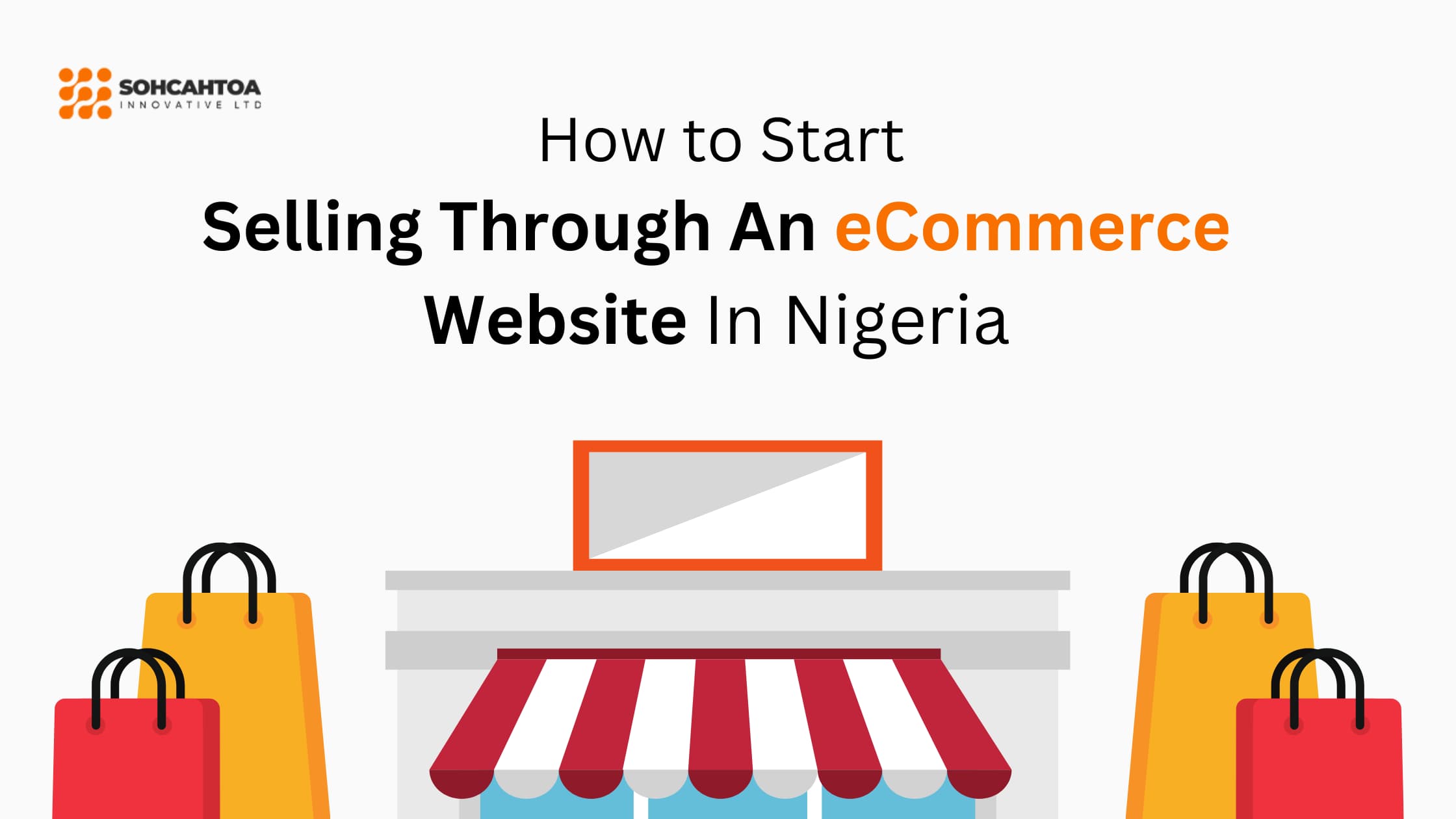
The typical online seller in Nigeria doesn’t like selling through an ecommerce website. You hear complaints like “ecommerce websites are expensive”, “customers don’t buy from ecommerce sites”, and “I sell only on WhatsApp.”
*Sighs* Be “calming” down. Not all of those excuses are true.
Launching an ecommerce website for your business might feel like a big step, but it’s one you won’t regret. You might have been running your business from a physical store or through social media, but taking it online with an ecommerce website can level up your hustle big time.
Let me break down why you own an ecommerce website and how to cheaply launch, manage and sell through it! Stay with me.
Why You Should Launch an eCommerce Website for Your Business
First, why bother with an ecommerce website when you’re already doing fine selling on Instagram, Facebook or WhatsApp? Here are some solid reasons:
With an ecommerce website, your shop is open 24/7, and your customers can be anywhere in Nigeria or even abroad. That means more potential sales, whether it’s 2 AM in Lagos or a Sunday afternoon in Port Harcourt. You don’t have to send customers pictures all the time to show what you sell You will have everything in one place, on your website and make sales when you’re asleep.
Having your website makes your business look more legitimate. Nigerians buy a lot from Jumia, Konga and other ecommerce sites. They are likely to trust you more if they can find your store online, and it shows that you’re serious about your business. Unlike social media, where you’re at the mercy of algorithm changes, with your website, you’re in charge. You control the layout, the customer experience, and the data.
You integrate various payment methods, from card payments to mobile money, to make it easier for your customers to pay however they prefer. Add an inventory tracking system to your site and you can easily manage your store from one place.
If you think no small business uses ecommerce website in Nigeria, think again. Here are some examples:
Example of Small Businesses Using eCommerce Websites
Girlyessentials: “Selling wigs through an ecommerce website?” Yep! Girlessential is one of the many bold Nigerian women’s essentials small businesses turning to ecommerce websites to sell their products. The brand has an extensive product display catalogue, payment systems, cart, newsletter opt-in, offers and other marketing features to improve the shopping experience for visitors!
Shoeplace: Shoeplace uses an e-commerce website to sell the very thing that people say is hard to sell online — shoes! Lots of shoes. The brand has integrated a display catalogue, cart, and payment system to make buying from their website super easy.
Fastestcakes: Buying cakes from an ecommerce website in Nigeria still feels surreal and Fastest Cakes is one of the small businesses making that possible.
24Foods: Another business doing what people thought was not possible through an ecommerce website in Nigeria. 24Foods sells groceries exclusively through their website!
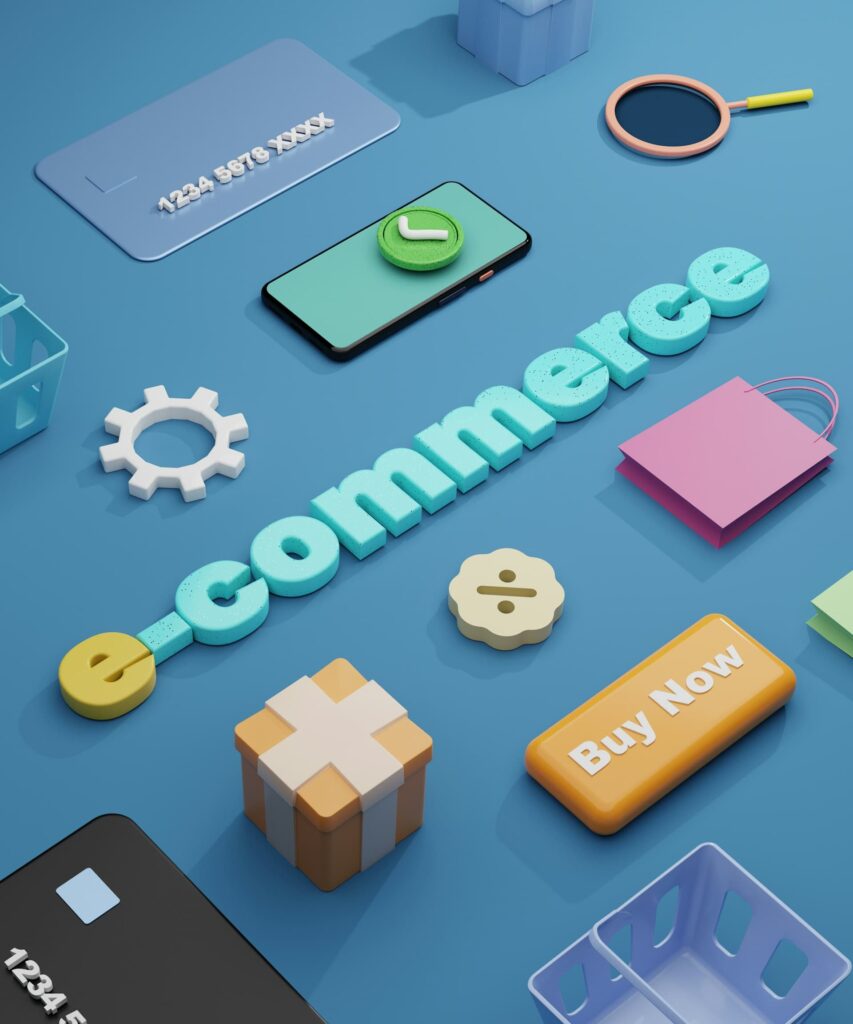
How to Build an eCommerce Website
Building an ecommerce website might sound like a lot of coding trouble, but it doesn’t have to be. Here’s a step-by-step guide to get you started easily:
#1. Choose a Domain Name
Your domain name is your website’s address. It should be short, catchy, and reflect your brand. For example, if you sell fashion items, something like “NaijaTrends.com” might work.
#2. Pick a Hosting Platform
Hosting is where your website lives on the internet. Platforms like WhoGoHost, Bluehost, SiteGround, and HostGator are popular and reliable choices for small businesses in Nigeria.
#3. Select an ecommerce Platform
This is where the magic happens. Popular platforms include Flutterwave store, Paystack commerce, Shopify Lite, WooCommerce (for WordPress), BigCommerce and many more. These platforms help you set up your store, manage products, and process payments.
#5. Design Your Website
You don’t need to be a designer to create a good-looking website. Most ecommerce platforms offer drag-and-drop builders and templates, so you can customize your site without touching any code.
#6. Add Your Products
Upload high-quality pictures of your products, write clear descriptions, and set your prices. Remember to include all the important details, so customers know exactly what they’re buying.
#7. Set Up Payment Methods
In Nigeria, it’s important to offer multiple payment options. Integrate payment gateways like Paystack, Flutterwave, or even simple bank transfer options to cater to different customer preferences.
#8. Launch Your Website
Once everything is set up, it’s time to go live! At the click of a button, Phewwwww! You’re live! However, don’t forget to test everything first—make sure payments are working, links are correct, and the website loads quickly on both mobile and desktop.
eCommerce Website Templates You Can Use
If you’re not sure where to start with design, templates are your best friend. They save time and help you create a professional-looking website without stress. Here are some templates that are perfect for Nigerian businesses:
Debut (Shopify)
A clean and simple template that’s great for beginners. It works well on mobile devices, which is key since many Nigerians shop on their phones.
Flatsome (WooCommerce)
This is a highly customizable template that’s perfect for those who want more control over their design. It’s also known for being fast, which is essential for keeping your customers happy.
Porto (WooCommerce)
Porto is versatile and can be used for various types of ecommerce stores. Whether you’re selling fashion, electronics, or beauty products, this template has you covered.
Electro (WooCommerce)
If you’re in the tech or electronics business, this template is a perfect fit. It’s designed to handle large product inventories and showcase items in a way that’s easy for customers to browse.
Wokiee (Shopify)
Wokiee is a modern and responsive template that offers a lot of flexibility. It’s great for fashion stores but can be adapted for other types of products as well.
This guide should get you started on your journey to building an ecommerce website that can take your business to the next level.
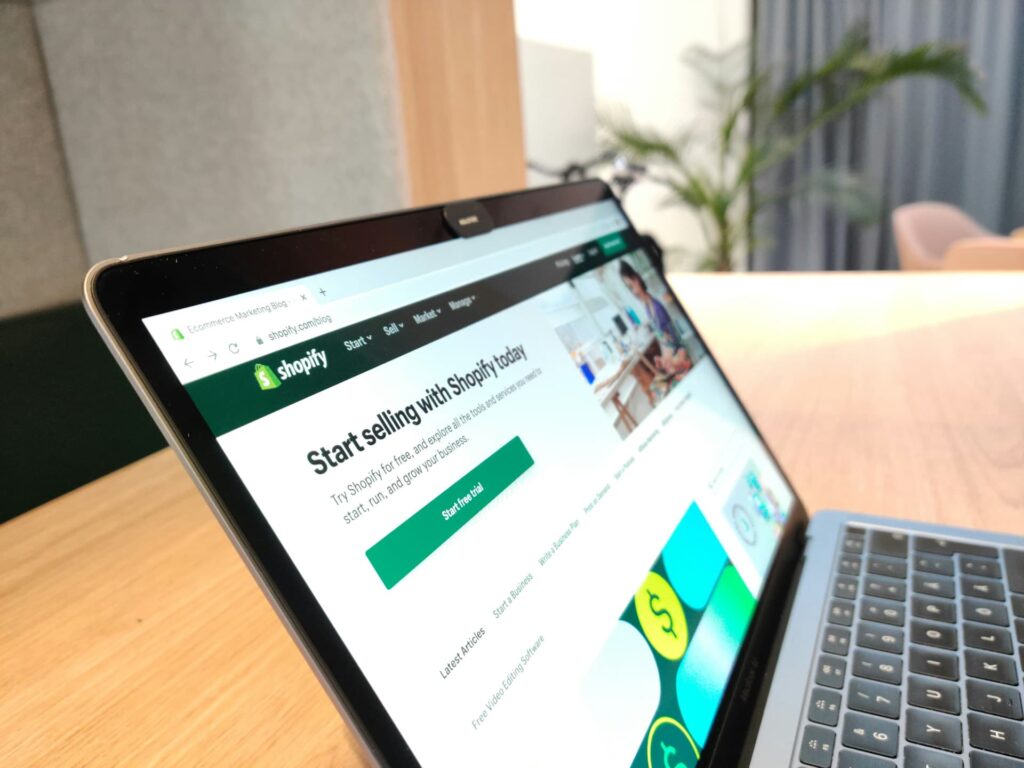
Low-cost eCommerce Website Builders for Nigerian Small Businesses
When it comes to setting up an ecommerce website on a budget, there’s no need to worry. You don’t have to spend your life savings to get your online store up and running. Here are some low-cost ecommerce website builders that are perfect for Nigerian small businesses:
Flutterwave Store:
This one is made for African businesses, so you know it’s got you covered. The best part? It’s free to set up. You only pay transaction fees when you make a sale. It’s perfect if you’re just starting and don’t want to commit too much money upfront.
Paystack Commerce:
Another great local option. Paystack is known for its reliable payment processing, and its commerce solution lets you set up a store at no initial cost. Like Flutterwave, you pay as you sell. Easy peasy!
Ecwid:
Ecwid is a game-changer. They offer you a plan to build a professional ecommerce website for literally free. Zero dollars for a start! The ecommerce platform helps you to easily create a bold, easy-to-use online store and start selling anywhere—online or in-person.
WooCommerce:
If you’re good at building websites or already have a WordPress website, WooCommerce is a free plugin that can turn it into an ecommerce site in minutes. You’ll need to pay for hosting (around ₦3,000 per month) and maybe a premium theme if you want something fancy, but it’s a flexible and powerful option.
Shopify:
If you’ve got more cash to invest, Shopify is a solid option, simply because it offers insane features others on this list don’t. For about $24 a month, you get access to a bunch of tools that make selling online super easy. They even offer a 14-day free trial, so you can test it out before committing. Plus, it’s so user-friendly that even your grandma could set up a store.
No matter your budget, there’s an option out there for you. Just pick the one that fits your pocket and start selling!
Should You Hire a Web Developer or Build Your eCommerce Website Yourself?
Now, this is the big question: should you get someone to do it for you or just do am yourself? The answer depends on a few things.
Your Budget: Hiring a web developer can be expensive, especially if you want something custom-made. If you’ve got deep pockets and want a truly unique website, go ahead and hire a pro. But if you’re on a tight budget, building it yourself using an ecommerce website builder like Shopify or WooCommerce might be the smarter choice.
Your Time: Do you have the time to learn how to build a website? If you’re already busy running your business, hiring someone might save you plenty of time and stress. But if you’ve got a bit of free time and don’t mind learning something new, these ecommerce platforms are so easy to use that you can have your site up and running in no time.
Your Tech Skills: If you’re not tech-savvy, trying to build a website from scratch can be frustrating. But don’t worry—most ecommerce platforms are designed with non-techies in mind. If you can handle setting up a Facebook page, you can build an ecommerce site with one of these tools. If you’re still not confident, though, a web developer can handle all the technical stuff for you.
Now, let’s talk about why selling through an ecommerce website beats WhatsApp and Instagram. Still with me? Let’s go.
Advantages of eCommerce Website Over WhatsApp and Instagram Selling
Sure, selling on WhatsApp and Instagram is great. It’s easy, it’s free, and everyone is on these platforms. But if you’re serious about growing your business, an ecommerce website has some serious advantages over selling on social media alone.
Professionalism
Let’s be real—nothing says “I mean business” like a well-designed website. It makes your business look more legitimate and builds trust with your customers. When people see that you’ve taken the time to create a proper online store, they’re more likely to buy from you.
24/7 Sale
An ecommerce website never sleeps. While you’re enjoying your beauty sleep, your website is busy taking orders. With WhatsApp or Instagram, you need to be online to interact with customers and close sales. With a website, the sales keep coming in even when you’re offline.
Automated Inventory Management
On social media, you have to manually update your inventory and handle customer queries about availability. On your website, once a product is sold out, it’s automatically marked as such. No more back-and-forth with customers about whether an item is in stock or not.
Wider Reach
With an ecommerce website, you’re not limited to your followers. People can find your products through search engines like Google, meaning you can reach a much larger audience. Plus, you can integrate your website with your social media accounts for a complete online presence.
Better Analytics
With a website, you get access to tools that let you see what’s selling, who’s buying, and where your traffic is coming from. This data is gold and can help you make informed decisions about your business. Social media platforms offer some analytics, but they’re not as detailed or useful as what you’ll get from a website.
Payment Flexibility
While you can accept bank transfers on WhatsApp and Instagram, an ecommerce website lets you offer multiple payment options like cards, bank transfers, and even mobile payments. This makes it easier for customers to pay, which means more sales for you.
Building a Customer Database
With a website, you can collect customer emails and build a database. This is crucial for email marketing and customer retention. On WhatsApp or Instagram, you don’t have direct access to customer data in the same way.
So, while WhatsApp and Instagram are great tools for marketing and customer engagement, an ecommerce website gives you more control, credibility, and sales opportunities. If you want to take your business to the next level, it’s worth considering.

How to Use WhatsApp and Instagram to Drive Traffic to Your eCommerce Website
So, you’ve got your shiny new ecommerce website up and running—congrats! But now, you need to get people to visit it and start shopping. That’s where WhatsApp and Instagram come in. These platforms are already buzzing with your potential customers, so let’s tap into that traffic and direct it straight to your online store.
- Create a WhatsApp Business Profile
First things first—make sure your WhatsApp Business profile is on point. Add your website link to your profile, along with a catchy description of what you offer. Anytime someone checks out your profile, they’ll see the link and can easily click to visit your store.
- Status Updates are Your Friend
Use WhatsApp Status to share updates about new products, special promotions, or discounts. Include a direct link to your website so that when people see something they like, they can head straight to your site to buy it. Throw in some emojis and local slang to keep it fun and engaging—something like, “Na your size be dis? Grab am now for my website! 🛒”
- Broadcast Messages
Got a new collection or a flash sale? Send a broadcast message to your contacts, but don’t just send plain text. Include a short and sweet message with a link to your website. For example, “New arrivals just landed. Click here to shop them at discounted prices! [Your Website Link]”
- Instagram Bio & Story Links
On Instagram, your bio is prime real estate. Make sure your website link is right there in your bio with a call to action like, “Shop Now” or “Click to Get the Best Deals.” Also, use Instagram Stories to share product updates and teasers. If you have over 10,000 followers, you can add a swipe-up link directly to your website. If not, tell people to “click the link in bio” to check out your latest offers.
- Instagram Shoppable Posts
Take advantage of Instagram’s shopping feature. Tag your products in your posts so that when people tap on an item they like, they’ll be directed straight to your website to complete the purchase. It’s a seamless way to turn those Instagram likes into sales.
- Leverage Instagram Ads
If you’re ready to spend a little, Instagram ads can help you reach a larger audience. You can create ads that link directly to your ecommerce website, targeting people who are most likely to be interested in your products. Just make sure your ad visuals are eye-catching and your copy is on point.
- WhatsApp Groups
If you’re active in WhatsApp groups related to your business, you can share your website link there too. But don’t spam—make sure you’re adding value to the conversation. For instance, if someone’s looking for a specific product, you can reply with, “I’ve got just what you need on my website. Check it out here [Your Website Link].”
Remember, consistency is key. The more you promote your website on WhatsApp and Instagram, the more traffic you’ll drive. And more traffic means more sales — simple as that.
Also, if you are tired of hustling alone and want to connect with other like-minded entrepreneurs serious about growing their businesses; join our free WhatsApp community, MyCEO Tribe, to network with other entrepreneurs learning from us! We share tips, events, and updates to help you maximise your marketing efforts, keep your customers coming back and grow your business. Join the community here.
Recommended Posts
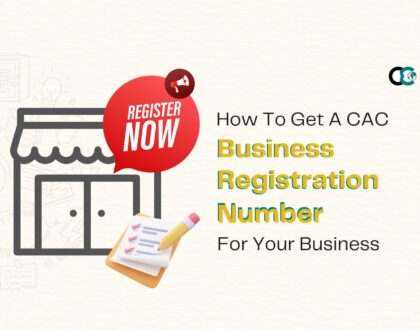
How to Get a CAC Business Registration Number for Your Business
February 27, 2025
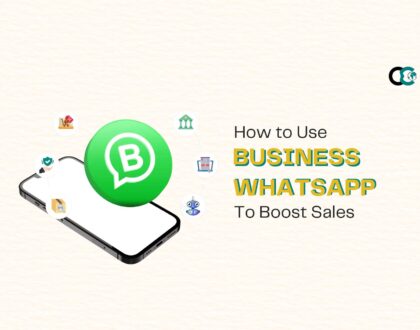
How to Use Business WhatsApp To Boost Sales
February 8, 2025

How to Grow Your Local Business Using Google My Business App
January 20, 2025
